Yongguo Kang
Multi-reference Tacotron by Intercross Training for Style Disentangling,Transfer and Control in Speech Synthesis
Apr 04, 2019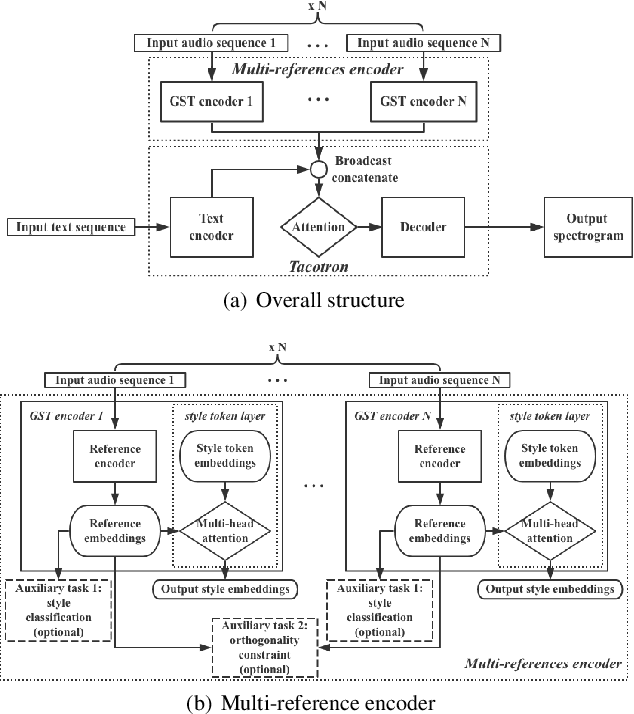
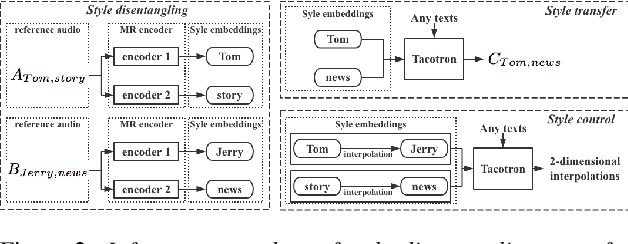

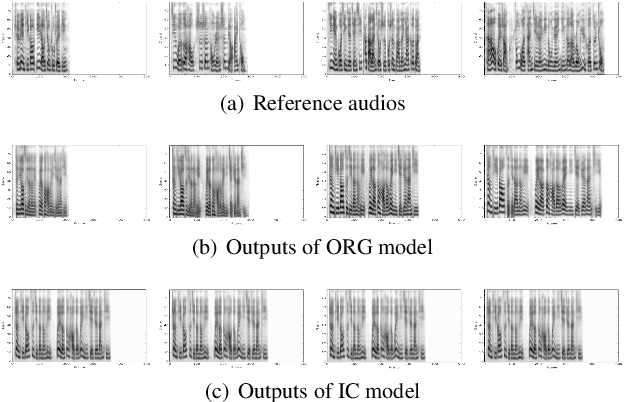
Abstract:Speech style control and transfer techniques aim to enrich the diversity and expressiveness of synthesized speech. Existing approaches model all speech styles into one representation, lacking the ability to control a specific speech feature independently. To address this issue, we introduce a novel multi-reference structure to Tacotron and propose intercross training approach, which together ensure that each sub-encoder of the multi-reference encoder independently disentangles and controls a specific style. Experimental results show that our model is able to control and transfer desired speech styles individually.
Deep Voice: Real-time Neural Text-to-Speech
Mar 07, 2017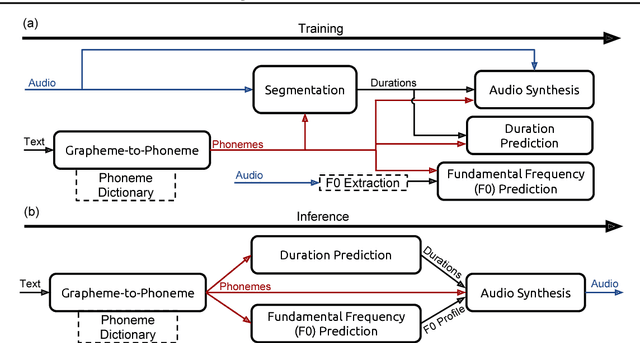
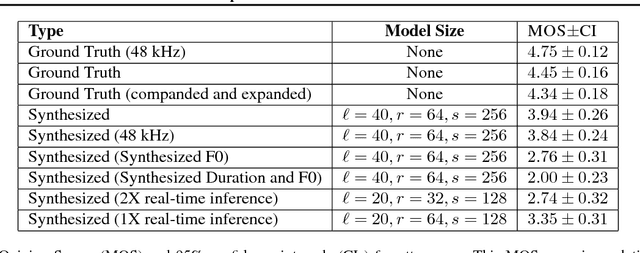
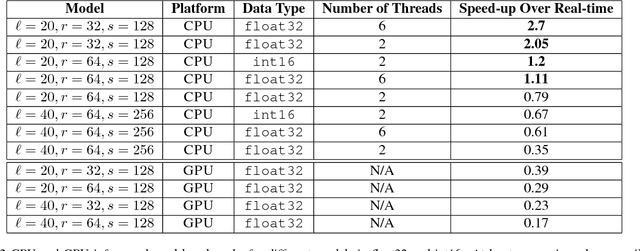

Abstract:We present Deep Voice, a production-quality text-to-speech system constructed entirely from deep neural networks. Deep Voice lays the groundwork for truly end-to-end neural speech synthesis. The system comprises five major building blocks: a segmentation model for locating phoneme boundaries, a grapheme-to-phoneme conversion model, a phoneme duration prediction model, a fundamental frequency prediction model, and an audio synthesis model. For the segmentation model, we propose a novel way of performing phoneme boundary detection with deep neural networks using connectionist temporal classification (CTC) loss. For the audio synthesis model, we implement a variant of WaveNet that requires fewer parameters and trains faster than the original. By using a neural network for each component, our system is simpler and more flexible than traditional text-to-speech systems, where each component requires laborious feature engineering and extensive domain expertise. Finally, we show that inference with our system can be performed faster than real time and describe optimized WaveNet inference kernels on both CPU and GPU that achieve up to 400x speedups over existing implementations.
 Add to Chrome
Add to Chrome Add to Firefox
Add to Firefox Add to Edge
Add to Edge